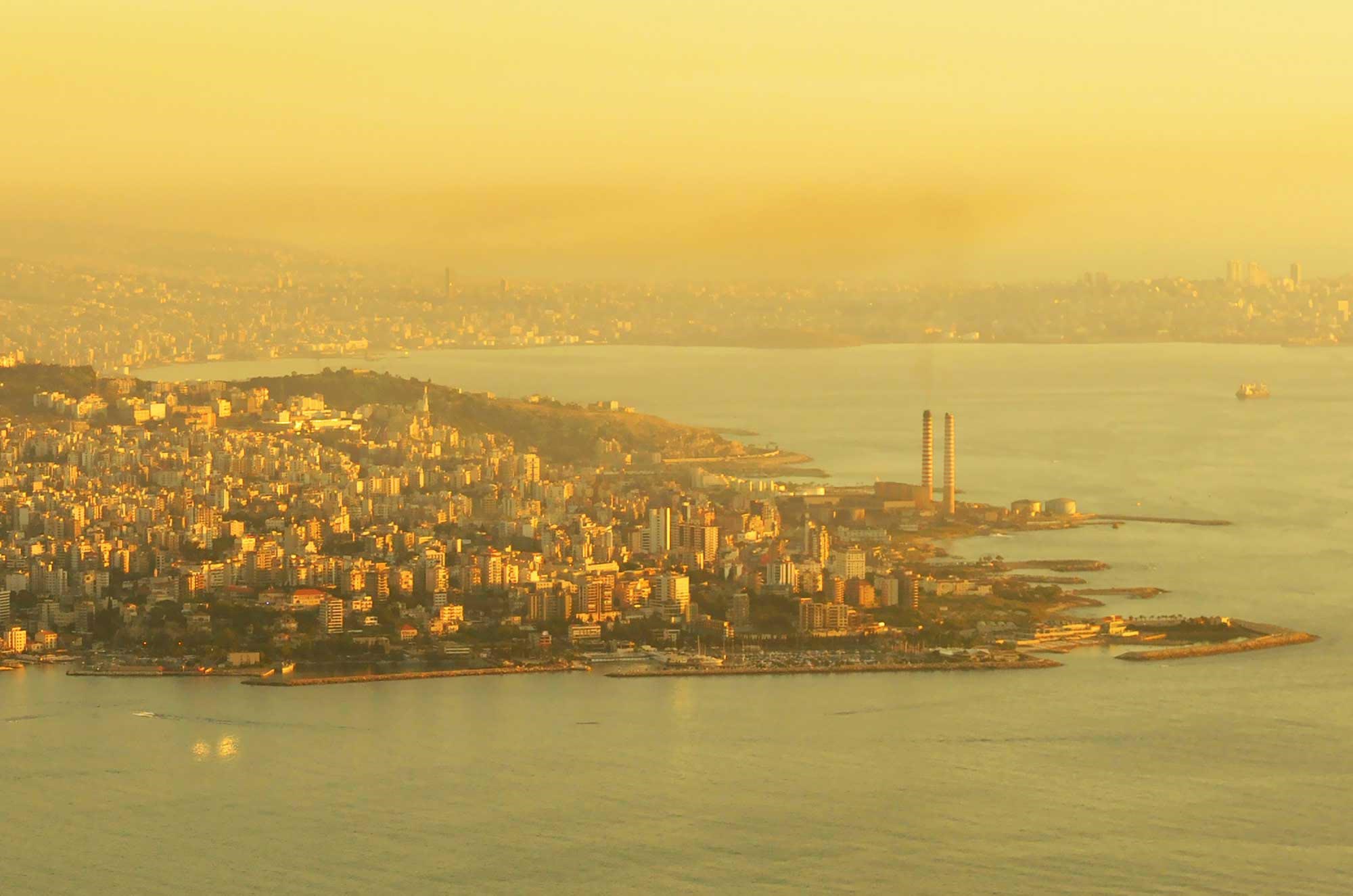WHO research shows 90% of Middle East air pollution from fossil fuels
Air quality in the Middle Eastern region has "permanently exceeded" WHO guidelines.
-

Air pollution over Beirut, Lebanon.
According to research published in the scientific journal, Communications Earth & Environment, over 90% of total air pollution in the Middle East comes from fossil fuels. The research, in an alarming sentiment, said that it "permanently exceeded: dangerous air quality levels.
The MENA region, according to the WHO, has some of the poorest air quality on the planet.
Read more: Air Pollution Kills 7 Million Per Year, Says WHO
There has been, for a long period of time, that the smog that clouds above cities in the region are sand dust from deserts, with the knowledge that there are over 20 major sandstorms every year.
A team of researchers from around the globe toured the Mediterranean Sea in 2017, through the Suez Canal, and around the Gulf to assess the air quality in the region. Specialized equipment was used to analyze air quality and particulate matter on shore.
The size of the particles - which happen to be very small - can infiltrate into the lungs and put populations at great health risks. The particles, according to the research, were man-made, and are mainly attributed to the burning of fossil fuels.
The research exhibited how the region was blanketed with toxic material, such as sulfur dioxide, which comes as a result of oil extraction.
Container vessels in the region also added to the pollution in the atmosphere.
"We have refineries such as those in Saudi Arabia and the United Arab Emirates that are a big source of air pollution as well as ships on the Red Sea, and in the Suez Canal region," said Jos Lelieveld, who is a lead author in the study.
"So the combination of all of these means that the air is much more polluted than what most people hope it to be."
As for the mortality rates, the percentage of fossil-fuel-caused mortality rates are different between nations. According to the study, while 5.9% of deaths in Cyprus are attributed to fossil fuels, in Kuwait, that percentage is 15.9%.
The air quality "permanently exceeded" WHO guidelines, causing 1 in 8 deaths in the region.
Read next: Beijing meets state air quality standards for first time
"It is very comparable with things that are really of great concern, for example, tobacco smoking and high cholesterol, which are major health risks in the region," Lelieveld told AFP. "And the realization of this in the region is practically zero."

 3 Min Read
3 Min Read








